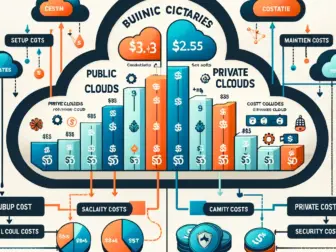Tag - private cloud computing
Exploring the Benefits of Private Cloud Computing
In recent years, private cloud computing has emerged as a popular choice for organizations looking to maintain control over their data and applications while still reaping the benefits of cloud technology. Unlike public clouds, which are shared among multiple users, private clouds are dedicated to a single organization. This offers greater security, customization, and control over data privacy and compliance.
One of the key advantages of private cloud computing is the enhanced security it provides. With a private cloud, organizations can implement additional security measures tailored to their specific needs, ensuring that sensitive data is protected from unauthorized access. This level of control also allows organizations to meet stringent compliance requirements, such as HIPAA or GDPR, without sacrificing efficiency or flexibility.
Another benefit of private cloud computing is the ability to customize the infrastructure to meet the unique demands of the organization. With a private cloud, organizations can tailor the hardware, software, and network configuration to their specific requirements, rather than relying on a one-size-fits-all solution. This level of customization enables organizations to optimize performance, scalability, and reliability to support their business goals.
Private clouds also offer greater control over data governance and privacy. Organizations can choose where their data is stored and processed, ensuring compliance with data residency laws and regulations. This level of control is especially important for organizations in highly regulated industries, such as healthcare, finance, or government, where data privacy and security are top priorities.
In addition to security, customization, and data governance, private cloud computing also offers scalability and cost-efficiency benefits. Organizations can scale their private cloud infrastructure up or down based on demand, providing the flexibility to adapt to changing business needs. While initial setup costs may be higher than public cloud solutions, the long-term cost savings from increased efficiency, reduced downtime, and better resource utilization often outweigh the upfront investment.
Overall, private cloud computing provides organizations with a secure, customizable, and cost-effective solution for managing their data and applications. By leveraging the benefits of private cloud technology, organizations can optimize their IT infrastructure, enhance data security, and achieve greater control over their cloud environment. As the demand for data privacy and compliance continues to grow, private cloud computing is poised to play an increasingly important role in the digital transformation of organizations across industries.
